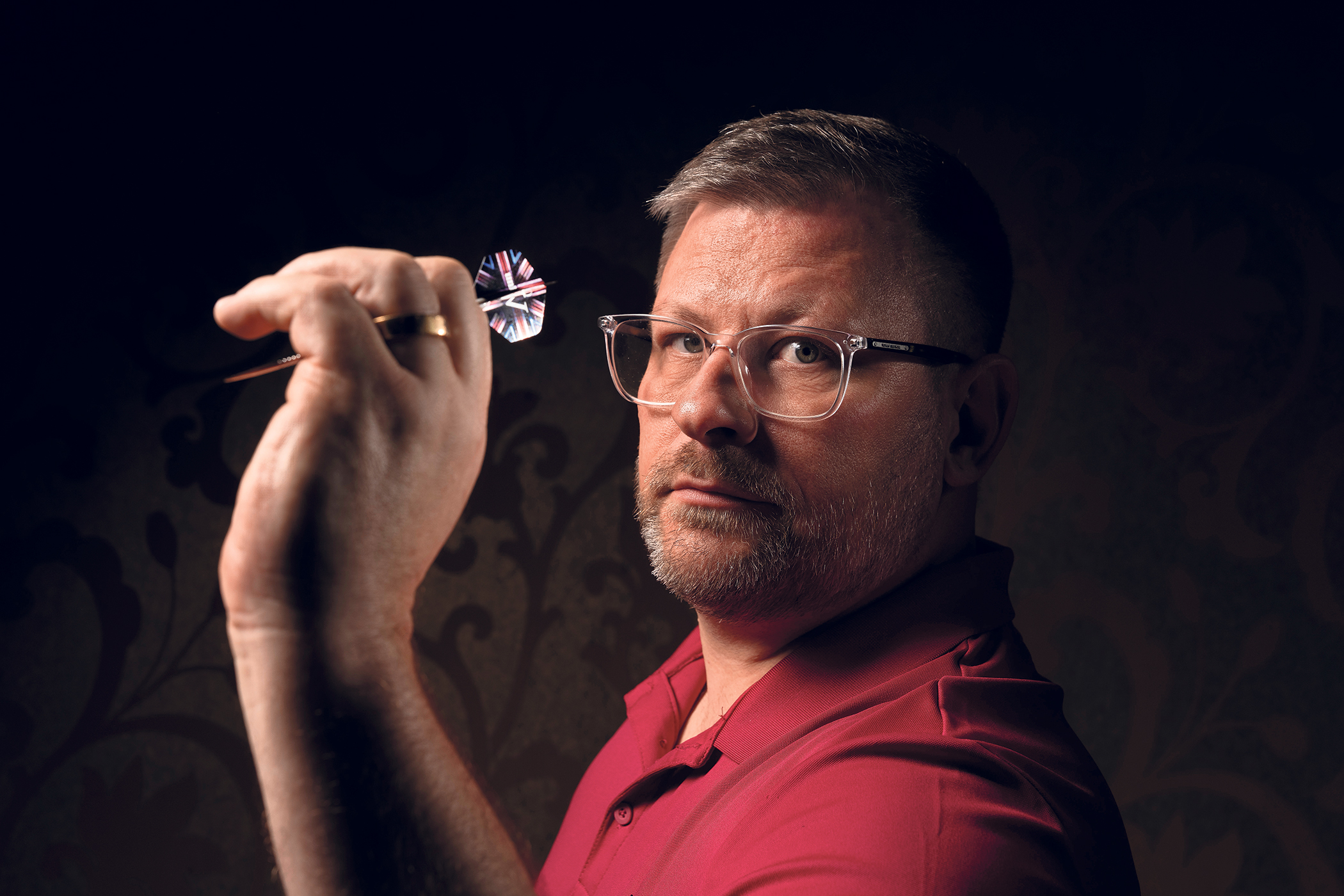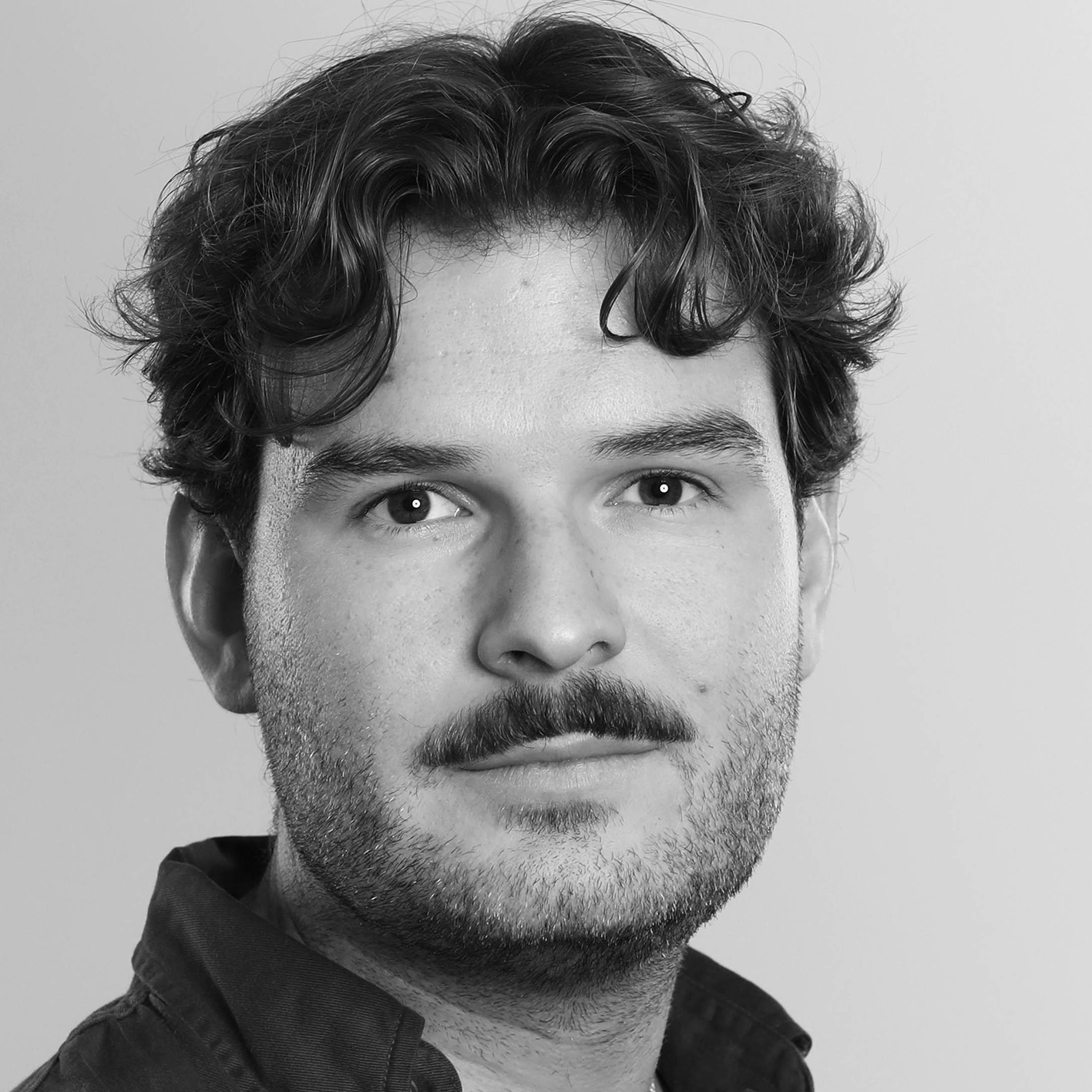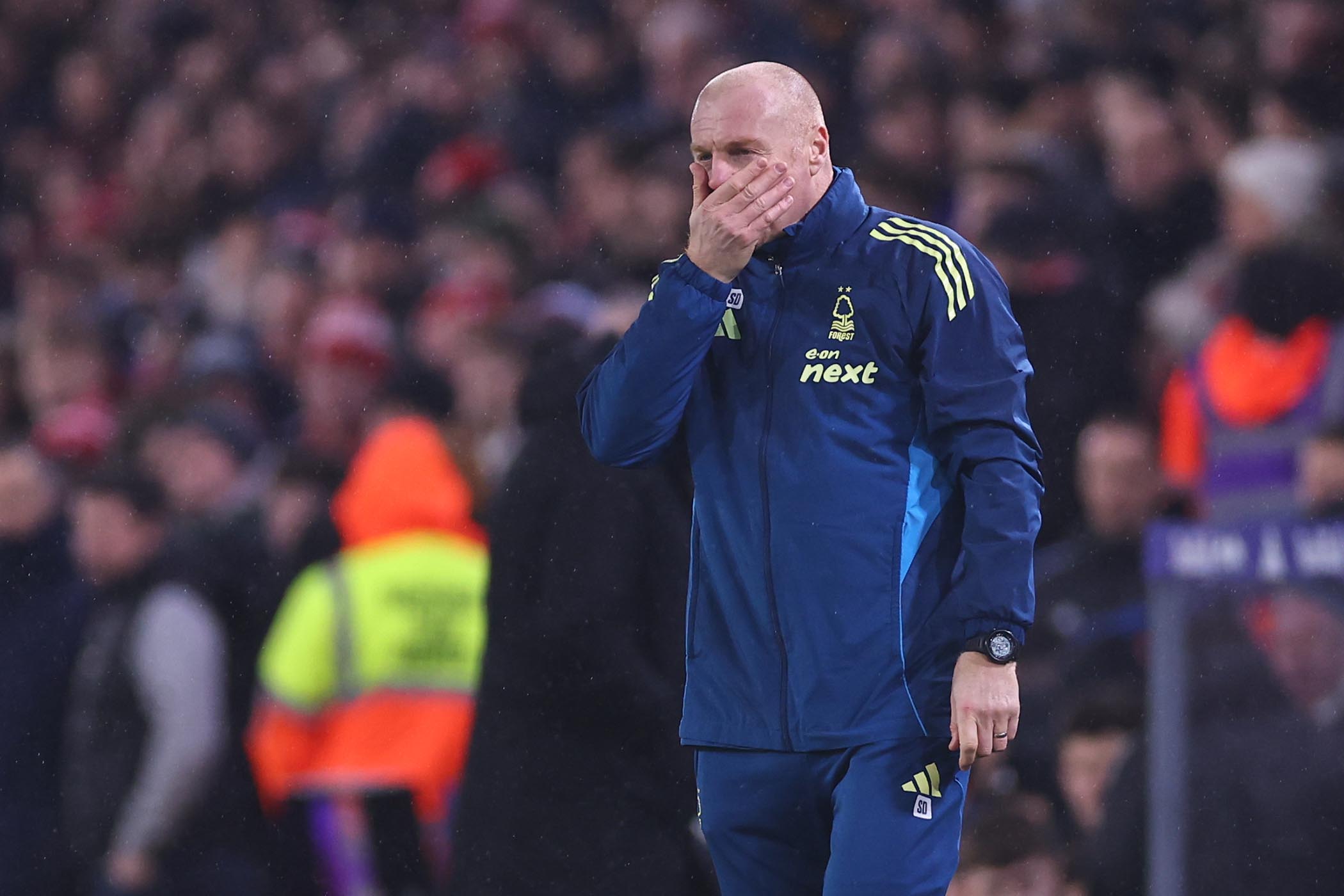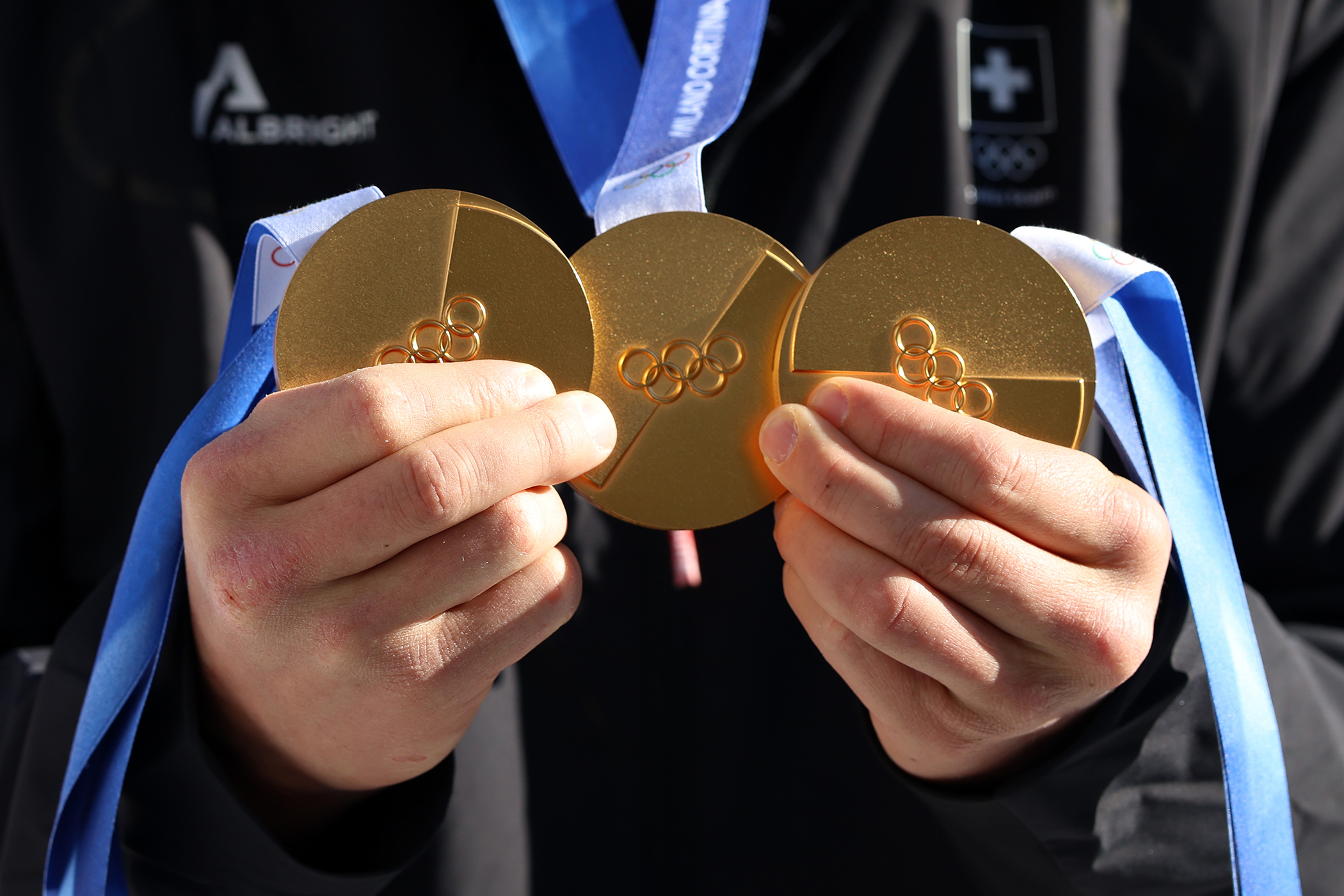James Wade looks around Farnborough’s Sovereign Snooker Club, one of those rare enduring bastions of an England past, and anxiously tears tiny holes in a beermat. Across a frantic hour on a Monday afternoon, he has an opinion on everything and rattles through a litany of grudges with everyone from a Sky producer – “He always broadcast me in a real negative manner” – to the Professional Darts Corporation – “I wouldn’t be able to sleep at night with some of the decisions that have been made against me” – to a pond.
Now 42, Wade is one of the great darts players of his generation and perhaps its most fascinating figure, cantankerous and anarchic but charming. He has a case to be considered the best player never to win a World Championship, but has still earned almost £5m in prize money across that period and lifted 10 PDC majors. Last month he became the only player to have beaten every PDC world champion on television, when he toppled Luke Littler in the European Championship. He is competing in his 18th Grand Slam of Darts, a joint-record, beginning in Wolverhampton on Saturday night against Stefan Bellmont.
At 27, Wade was diagnosed with Attention Deficit Hyperactivity Disorder (ADHD) and bipolar disorder. He was checked into the Priory in 2010, after his father told him “I just want my son back” during a depressive episode so severe he was having suicidal ideations. The ensuing 15 years have been tempestuous and erratic, sometimes glorious and sometimes downright bizarre, but this year he has risen to world No 5 and reached the finals of the UK Open and World Matchplay. The skill in elite darts is attaining calm and balance amid chaos, and few find calm more difficult than Wade.
“It’s a miracle what I’ve achieved really,” he said. “People don’t realise that you can’t just compare me to someone else, because it’s not about how good I am. It’s about what day I’m having. I’ve got to have five good days to do well in a tournament. Unfortunately, I have one, or none, or sometimes three. That’s why I’ve always struggled at the World Championships, because it’s such a long time span, and I get more obsessed with trying to keep myself in a good place than I do playing.
“I could have won [the European Championship], but I had my Negative Nelly head on. I wanted to go home, didn’t care. But when you say that in your interview, everyone goes, ‘Oh, it’s an excuse’, and you’re judged by casual fans that haven’t got a clue. There’s nothing worse than a casual darts fan.
“Darts is probably the worst environment for someone with my brain, because what people don’t realise is they boo you on stage and it’s all funny, but you take it personally. You get angry and upset, and it really does affect your home life and mental health. To everyone else, it’s just a laugh, and when you do play up, you’re just in trouble. It’s really unsettling for me, because I’m not a bad person.”
‘I’m struggling now with my son, because I know what he’s got ahead of him with ADHD, and it’s my fault. It’s heartbreaking’
‘I’m struggling now with my son, because I know what he’s got ahead of him with ADHD, and it’s my fault. It’s heartbreaking’
James Wade
Wade has two sons with his wife Samantha, whom he met when she was in the now-defunct role of PDC walk-on girl. One of his sons is in the process of being diagnosed with ADHD after behavioural issues at school. Endlessly self-critical, often to the point of paranoia, Wade clearly feels a perverse sense of guilt for this – research increasingly suggests that ADHD is at least partially hereditary. “I’m really struggling at the moment with my son, because I know what shit he’s got ahead of him, and it’s my fault – he’s got it from me,” he says. “It’s heartbreaking. We’ve had to pull him out of school, because he’s having outbursts. We’re going to go down the medication route, because it’s fucking torture for him.
“I know how to help him learn, because he’s like I was. I know how uncomfortable it is talking at people, because they won’t talk to you and you don’t know how to talk to people. He’s got to go through all that. And he will. He’ll be all right.”
Wade has spent 15 years after his diagnosis attempting to make peace with his own mind, a process he accepts will likely never end. He derides the prevailing stereotype of ADHD as a superpower as “so horseshit, very 1960s”.
“ADHD makes things annoying,” he says. “I get really impatient with people. Noises annoy me. I get overwhelmed a lot. There’s more negatives than there are positives.
Newsletters
Choose the newsletters you want to receive
View more
For information about how The Observer protects your data, read our Privacy Policy
“It’s the silly things, like when you get picked up for a TV tournament and it’s three minutes late, what people don’t realise is that inside that is horrendous. It really does unsettle you, and that can be your mood and plans sorted for the rest of the day. I still have nothing to do with our finances, because I could be very dangerous.”
Another current bane of his life is a pond being installed in his garden. “Obviously, me being me, it’s not a normal pond. What I’ve spent on a pond because Samantha said I could have one is horrendous.”
Is he happy with the pond? “No, it’s not even finished. Now it’s just stressing me out, making me angry, and I wish I’d never started it, but I’m so financially committed to it now, we have to continue. That’s part of my charm, isn’t it?”
Wade took medication for his ADHD from his diagnosis until 2022, when he stopped because of the Therapeutic Use Exemption (TUE) process required by the Darts Regulation Authority (DRA). To compete on the medication, he must request a new TUE every year, which, he says, requires seeing a different psychiatrist every time. This can be difficult, particularly for the ADHD brain, although the DRA claims that he does not need a full assessment each year.
“They don’t seem to understand that ADHD and bipolar isn’t going away,” he says. “They ask you about all the shit of your past, stuff you don’t want to talk about, and I have to do it with someone I’ve got no relationship with, otherwise they’re not going to give me a letter to say I can take the medication. It’s intrusive. It makes me spiral, I get so stressed out, I feel like I’m back at school and I hated that. So because of that, I stopped taking them.”
Wade has competed on the PDC Tour for longer than almost any other active player, giving him a unique perspective on the rapid evolution and seemingly ceaseless growth of darts. “It’s now at a place where it needs to move on again, because everyone has done a lot, and the money is lovely, but you also need the other stuff around it,” he says. “When you compare it with other sports, darts is like the stone age. You’ve got young kids coming in, some of them have got some bad habits, and they’re not looked after. It’s not the PDC or [promoter] Matchroom’s place to look after them, but if you’re giving someone large sums of money, it’s your job to guide them. I know personal management should do that, but there’s a lot of managements around darts that are out for themselves, they just want to take a percentage.
“I prefer the money now, I don’t prefer the timetable. Overall, it’s 100% a positive thing where darts has gone. But I could 100% stay in a hotel every day of the week and be doing something in darts. You don’t actually need to have a house. Is that healthy? I’d rather play in Saudi Arabia because if I’m going there, I only have to play a few games, you probably get more time away from the darts than if you stayed in the UK. Saudi Arabia is definitely a better place than Wigan, Barnsley, Hildesheim [in Germany], the list goes on. Have you seen Wigan? Now that’s bad for mental health.”
For all darts’ financial progress, there is a sense that it has moved too fast to secure its foundations and construct the necessary supporting infrastructure for players. The primary target of Wade’s ire is the Professional Darts Players Association (PDPA), the closest thing the sport has to a union.
“I get players talking to me when they don’t feel very well,” he says. “I’m happy to do it, but there should be somewhere [where] they feel they can talk to someone and trust someone. We’re talking high-profile players. The PDPA is not [doing] anything worthwhile, because they don’t represent us, they don’t understand a lot of things. It needs to be an active rather than a passive thing.”
Wade has no imminent plans to retire, but does have ambitions to launch his own charity to help other neurodivergent people, led by both his and his son’s experiences.
“We all keep saying it needs to be spoken about more, but it needs to be people who actually have it, talking about the real bits,” he says. “It is normal to feel completely confused. I want to tell my 20-year-old self it’ll be all right. Don’t try so hard. Don’t be desperate to please everyone, to try and be popular. If you look after yourself and slow down a little bit, everything falls into place. But I wouldn’t have listened at that age. I was so insecure and busy and chaotic – I still am now, but not as bad. Life is fucking hard.”
What is ADHD?
Attention deficit hyperactivity disorder is a neuro-developmental condition and form of neurodivergence (alongside conditions like autism spectrum condition). Common ADHD symptoms include struggles with controlling attention, impulsivity and emotional dysregulation. NHS England estimates about 2.5m people in England have ADHD, while between 15-20% of the population are neurodivergent. Learn more here.
Photograph by Andrew Fox/The Observer



